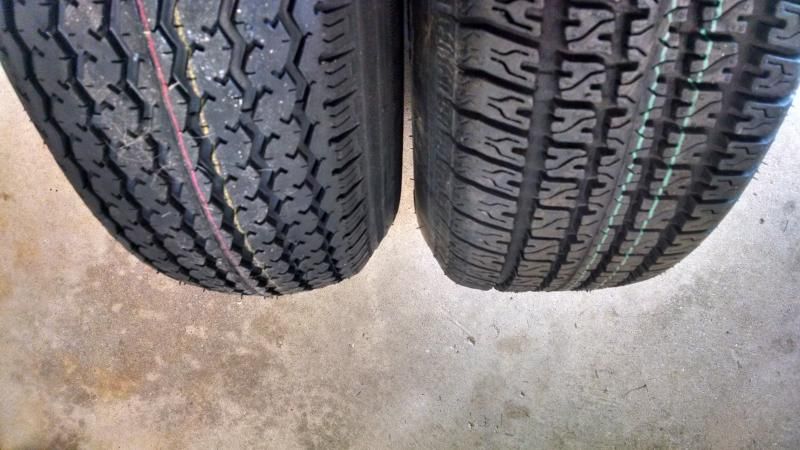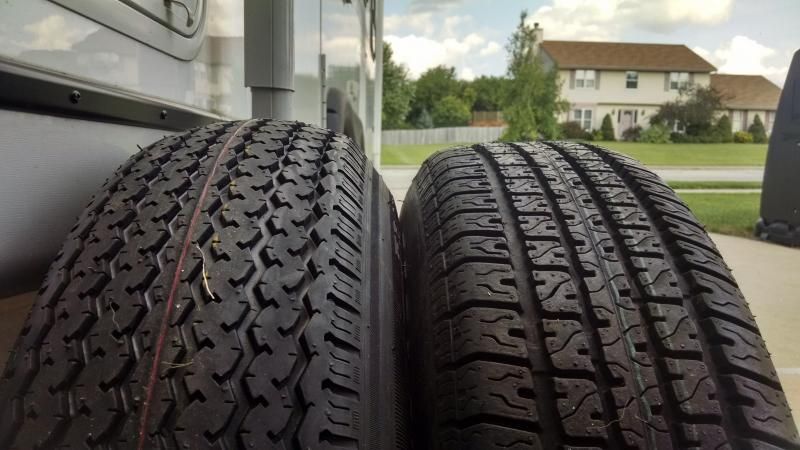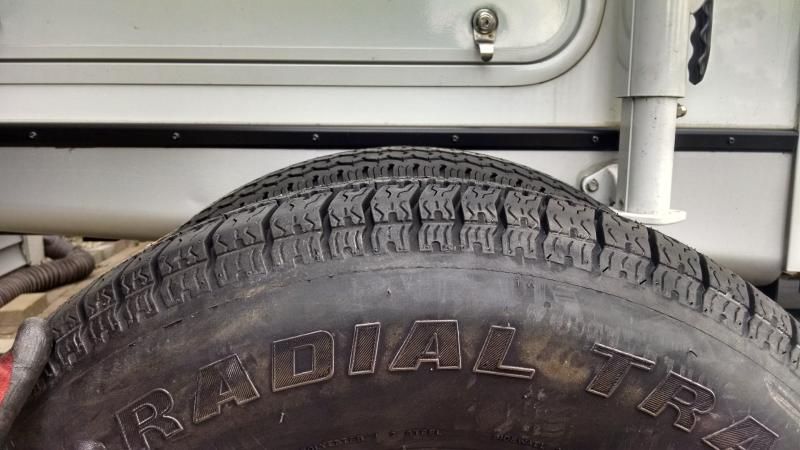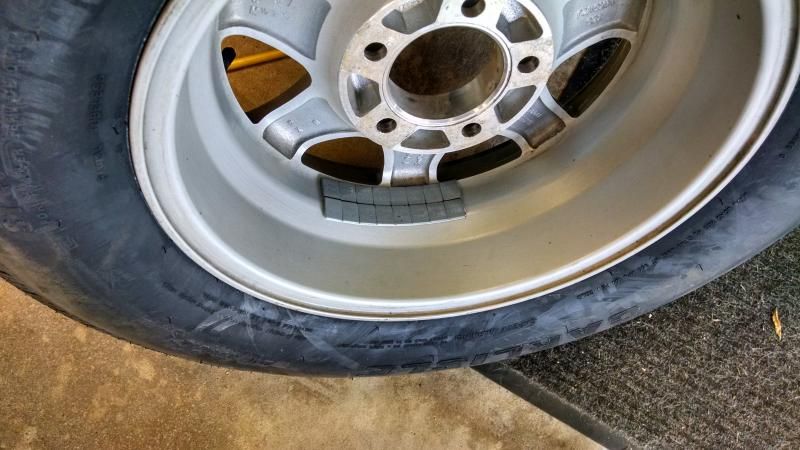RinconVTR
Aug 16, 2014Explorer
Bias Ply to Radial's - a few (critical?) observations
After 3 seasons, 12-15k miles, I replaced the OEM Trailmaster bias ply 205/75R14's with Carlisle Radial trail RH. No blowouts, but about 3" of the center tread was raised, leaving me to suspect they will not last much longer.
Please save the comments about my new tire choice, that's not what my post is about. Its about my observations.
First, the tread profile. A number of manufactures, bias play and radial brag about a rounded tread profile. I never gave this much thought in the past, but now I find myself asking, why in the world would I want this on a large TT? I want a flat profile with stiff sidewalls to eliminate lateral movement. Look at the difference between my spare and the new radial. Rounded makes zero sense to me, thus a reason I avoided a couple other radial options.

Then look at the height/diameter difference. (YES...they are the same size tire!)


Finally, a comment on balancing. I have never balanced trailer tires until today. And look at the weights it took to balance them! I will ALWAYS balance my trailer tires from now on. For a few bucks more, it just makes sense.


Please save the comments about my new tire choice, that's not what my post is about. Its about my observations.
First, the tread profile. A number of manufactures, bias play and radial brag about a rounded tread profile. I never gave this much thought in the past, but now I find myself asking, why in the world would I want this on a large TT? I want a flat profile with stiff sidewalls to eliminate lateral movement. Look at the difference between my spare and the new radial. Rounded makes zero sense to me, thus a reason I avoided a couple other radial options.

Then look at the height/diameter difference. (YES...they are the same size tire!)


Finally, a comment on balancing. I have never balanced trailer tires until today. And look at the weights it took to balance them! I will ALWAYS balance my trailer tires from now on. For a few bucks more, it just makes sense.

